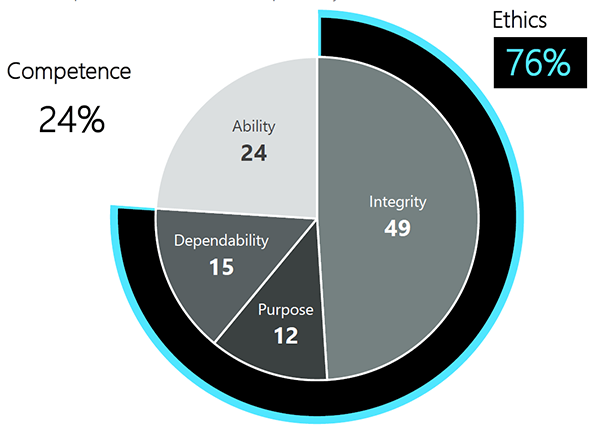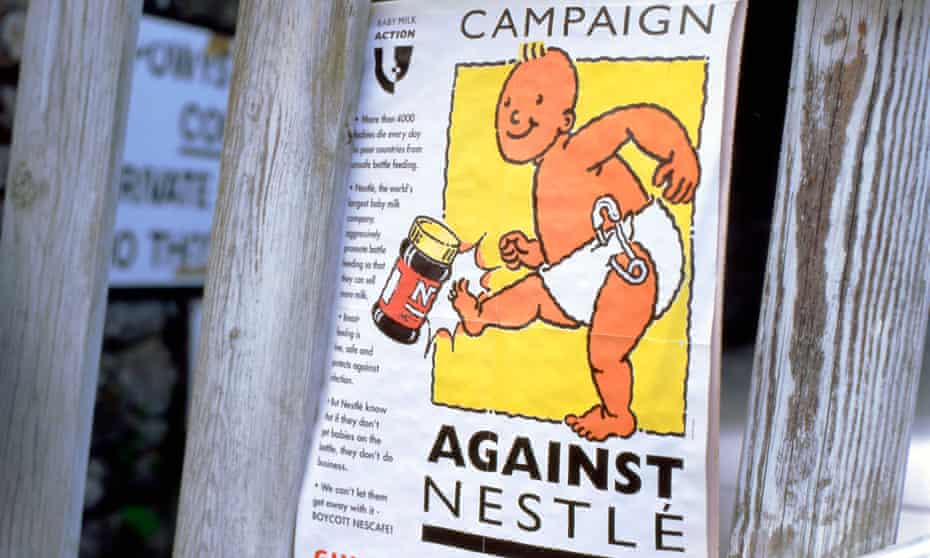The Truth and Nothing but the Truth, Right?
One of the most important parts of advertising is having the consumer trust the company and/or product and service. To build trust with target audiences advertisers have to utilize a certain level of ethics and morals. An article on Microsoft explains ethical advertising as being truthful and fair. MJ DePalma continues with, “An ethical advertisement is honest, accurate, and strives for human dignity. It also considers the advertising environments that are chosen for placement, and it examines potential for data bias in analytics.”
 |
The 2020 Edelman Trust Barometer is a study that measures the amount the public trusts our four societal institutions: government, business, NGO’s and media. The study showed that the public thinks that ethics are more important than competence when creating trust between companies. The most important ethical guideline principle is transparency. Consumers need time and reason to trust a company. The study also shows that the wealthier, more educated, and more frequent consumers of news, are more trusting of societal institutions than the rest of the population.
To build trust with consumers, the company must have good ethics and integrity. The first thing a company can do is be open and share its goals and objectives. Along with that, they need to do what they say they are going to do. They should also treat consumers fairly, by not stringing them along. Provide what is advertised with no games. One would think that it would be easy to be honest, do the right thing, and don’t take advantage of others, but that doesn’t seem to be the case.
Nestlé is the perfect example of a company that does not have good ethics. In the 70s, Nestlé pushed their breastfeeding formula in poverty-stricken countries, and through advertising made the formula out to be almost as good as mother’s milk. Below is an advertisement for Nestle’s milk formula.
The ad claims that by 8 months you should not be breastfeeding your baby anymore. The biggest problem with that is in their targeted areas clean water wasn’t accessible. Mothers would mix the powder with polluted water and put their children at risk. Mothers in these countries couldn’t read the instructions which said to use sterilized water, which Nestle did nothing to help the natives by adding another language to their packaging.

“Nestlé takes reports on non-compliance with the WHO Code very seriously and we have endeavored to investigate all allegations brought to our attention, despite the fact that in many cases we are not provided with accurate details substantiating the accusations. This makes it difficult for us to investigate how, where and when the alleged infringement could have occurred. Some of the allegations are several years old before they are brought to public attention, which also could complicate the investigation.”
Today It is a company’s responsibility to uphold the safety and well-being of all its customers. Being transparent and honest is expected. When advertising products brands and companies should have high standards.

No comments:
Post a Comment